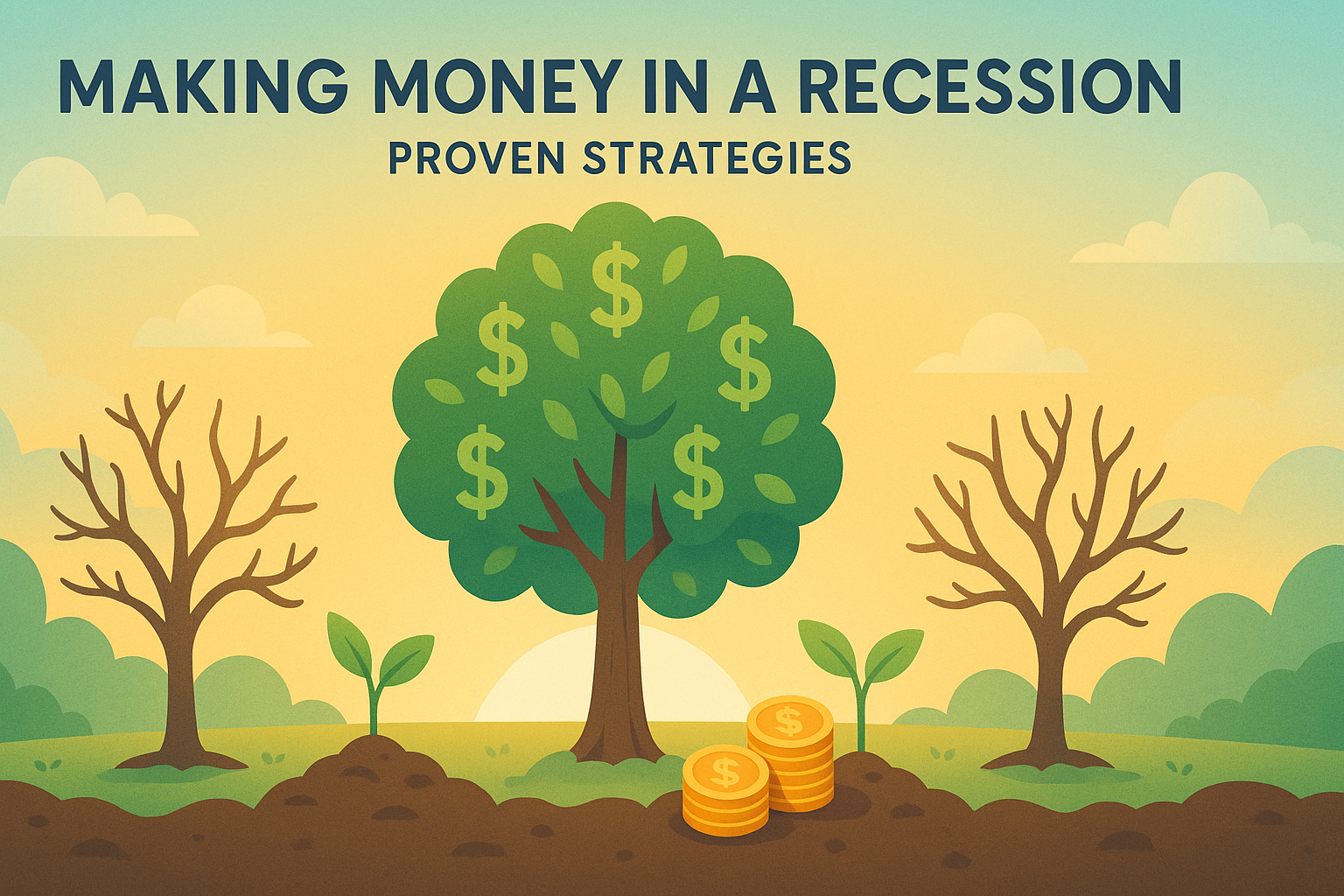Making Money in a Recession: Proven Strategies
When the economy takes a downturn, it can feel like the odds are stacked against you. But here’s a comforting truth: recessions, while challenging, also offer unique opportunities to innovate and grow financially. Let’s dive into some proven strategies to help you navigate these tough times and come out stronger on the other side.
Table of Contents
1. Introduction
2. Embrace the Gig Economy 🚀
3. Invest in Learning and Development 📚
4. Diversify Your Income Streams 💼
5. Smart Savings and Investments 💰
6. Conclusion
7. FAQs
Embrace the Gig Economy 🚀
In a recession, the traditional job market might shrink, but the gig economy often thrives. Platforms like Upwork, Fiverr, and TaskRabbit provide endless opportunities to leverage your skills. Whether it’s freelance writing, graphic design, or even home repairs, there’s likely a demand for your unique talents.
Personally, I found gig work to be a fantastic way to supplement my income during lean times. Plus, it offers flexibility that traditional 9-to-5 jobs often lack. If you’re just starting, consider building a portfolio or gathering testimonials to boost your credibility.
Invest in Learning and Development 📚
Recessions may stall certain industries, but they’re also a great time to invest in yourself. Online courses and certifications can enhance your skill set and make you more marketable. Websites like Coursera, LinkedIn Learning, and edX offer affordable courses on a vast range of topics.

For example, learning digital marketing or data analysis can open doors in industries that continue to grow despite economic downturns. Remember, knowledge is a powerful tool, and investing in it is never wasted.
Diversify Your Income Streams 💼
Having multiple income streams is not just a luxury; it’s a necessity during uncertain times. Think beyond your primary job: consider rental income, dividends from investments, or even starting a small side business.
I once knew a friend who started a small online store selling handmade crafts. The extra income not only helped her weather the recession but eventually turned into a full-time business. The key is to start small and scale as you learn what works.
Smart Savings and Investments 💰
It might seem counterintuitive to talk about investments during a recession, but it’s often when the best opportunities arise. Markets fluctuate, and low prices can mean potential high returns in the future. Focus on low-cost index funds or dividend-paying stocks that can provide steady income.
Also, re-evaluate your savings strategy. Make sure you have an emergency fund to cover at least 3-6 months of expenses. This safety net can offer peace of mind and prevent you from making hasty financial decisions.
Conclusion
Recessions are undeniably tough, but they also force us to innovate and adapt. By embracing the gig economy, investing in personal growth, diversifying income streams, and making smart financial decisions, you can not only survive but thrive during economic downturns. Remember, every challenge is an opportunity in disguise. 🌟
FAQs
Q: Is it safe to invest during a recession?
A: While it might seem risky, investing during a recession can be beneficial if done wisely. Focus on long-term investments, diversify your portfolio, and consult a financial advisor if needed.
Q: What are some easy gigs to start with?
A: Consider freelance writing, virtual assistance, graphic design, or even tutoring. Platforms like Upwork and Fiverr are great places to start.
Q: How can I start a side business with minimal investment?
A: Begin with something that leverages your existing skills or hobbies. Online stores, homemade crafts, or digital services require minimal startup costs.
Q: How much should I save in an emergency fund?
A: Aim for 3-6 months of living expenses. This should cover basic needs like rent, groceries, and utilities in case of income disruption.
Keep pushing forward, and remember: resilience and adaptability are your greatest allies. 💪
